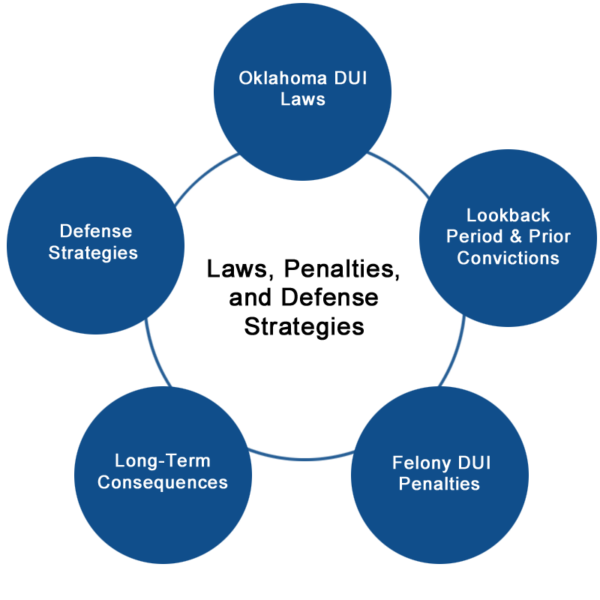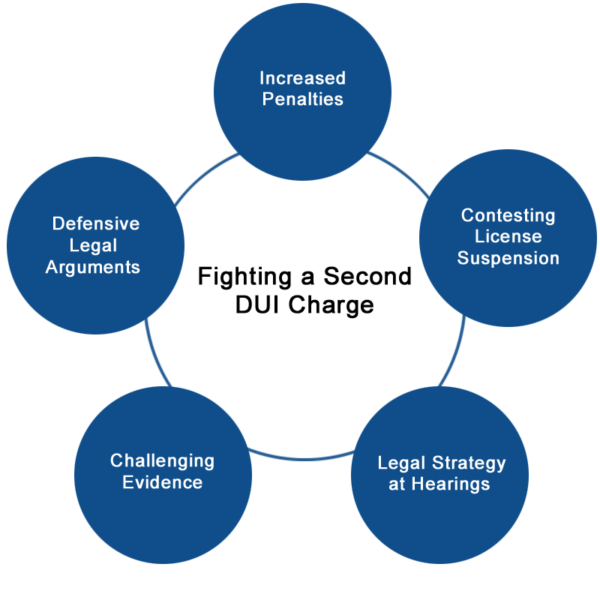DUI Second Offense
 If you have been arrested for your second DUI, it can be easy to feel overwhelmed. Having been through this before, you understand the process and the consequences, and furthermore you likely know that this being a second offense means that the penalties, fines and consequences will be steeper than they were for your first DUI. Just remember that you have options and there is hope that you can make it through this situation with your head held high. It just requires a little knowledge.
If you have been arrested for your second DUI, it can be easy to feel overwhelmed. Having been through this before, you understand the process and the consequences, and furthermore you likely know that this being a second offense means that the penalties, fines and consequences will be steeper than they were for your first DUI. Just remember that you have options and there is hope that you can make it through this situation with your head held high. It just requires a little knowledge.
Begin with the basics of a second DUI under Oklahoma law. In this state, as elsewhere, demonstrating a blood alcohol content (BAC) of .08% or higher (.04% for commercial drivers or .01 for drivers under the age of 21). This BAC is determined through a test of blood, breath or urine under the state’s Implied Consent Law. This law compels drivers to submit to testing, subjecting them to a two-year revocation of their driver’s license if they refuse. In cases where the driver demonstrated a BAC of .15% or higher, this can be considered an aggravated DUI which carries harsher penalties.
An arrest for driving under the influence (DUI), actual physical control (APC) or driving while intoxicated (DWI) only constitutes a second offense if there was a prior conviction within the last 10 years. This span of time is known as the “lookback period” and covers previous convictions that occurred within Oklahoma or other states under the Interstate Driver License Compact (IDLC). If the previous conviction came before that period, the latest conviction will likely be charged as if it were your first offense.
Otherwise, it will be considered a second offense DUI, which Oklahoma law classifies as a felony. This more serious classification carries with it more serious consequences, including revocation of your driver’s license for an extended period of time, mandatory installation of an ignition interlock device (IID), a greater jail sentence, much higher fines and mandatory attendance in drug or alcohol treatment programs. These programs may include alcohol education classes, counseling, victim impact panels, intensive outpatient programs (IOPs), regular testing and potentially rehab in serious cases.
As a felony, a conviction will remain a part of your permanent criminal record, affecting your future ability to secure a job, an education or housing and impacting your ability to travel. Plus, the potential pattern of behavior a second offense points toward gives the prosecution an edge in negotiating plea deals or sentencing. These two facts make it vital that you are effectively prepared to challenge the charges against you.
 Challenging a Second Offense DUI
Challenging a Second Offense DUI
A second conviction for DUI carries much higher consequences than a first conviction, including up to a year in county jail or up to five years in state prison. That’s on top of fines and court fees that could exceed $5,000, a suspension of your license for up to three years with a minimum of one year, mandatory installation of an IID for 2-8 years if you don’t contest your suspension, mandatory community service, counseling and rehabilitative programs and probation. If you are successful in contesting the charges against you, those charges could be reduced or dismissed, which would prevent a felony classification and keep your future and reputation intact.
The first thing you should do is contest your driver’s license suspension. From the date of your arrest, you have 15 days to request a hearing with the Oklahoma Department of Public Safety (DPS) to challenge the administrative suspension of your license. Challenging your suspension is important in order to continue driving for employment during the revocation, plus failure to challenge will result in the installation of an IID during the revocation period. However, if you qualify for an occupational license, you will be allowed to drive for your job, education or medical purposes, albeit with mandatory installation of an IID.
An attorney can help you file the petition, but their greatest value will come during the hearing itself. With the right legal strategy, they will be able to use this hearing to challenge the validity of the arrest itself, question whether probable cause existed in the first place to make the arrest, undermine the evidence and testimony that the prosecution has gathered, cross-examine witnesses and highlight any procedural errors on the part of law enforcement. Held without a jury, this hearing places the burden of proof on the state. If necessary, appeals can be filed with higher courts.
Crucially, this hearing gives your attorney a chance to identify weaknesses in the case against you and gain a greater understanding of the prosecution’s methods. This intelligence enables them to craft a strategy built around time-tested defenses, including:
Challenging the Arresting Officer: This involves demonstrating that the officer lacked a reasonable suspicion to pull you over, such as erratic driving or violating traffic laws, or that the officer failed to follow proper legal procedures during the stop. This can also involve disputing the accuracy of the administration of field or BAC testing, questioning the probable cause the officer had to make the arrest, and highlighting procedural errors they may have made from failing to read Miranda rights to incorrectly filing reports.
Challenging the Evidence: There are a variety of ways to go about undermining the evidence collected by the prosecution. Medical conditions or injuries may have affected the results of field sobriety tests or BAC tests. Equipment used to test BAC may have been improperly calibrated, and samples may have been handed incorrectly or contaminated. Witness testimony can be shown to be unreliable.
Regardless of the specifics of your case, a skilled attorney can work to challenge any allegations. If the prosecution alleges that you refused to be tested, it can be argued that you only did so after being improperly informed of the consequences. They can challenge the validity of a prior conviction. They can even show that you were not in physical control of the vehicle at the time of the alleged incident.
How We Can Help
We at The Edge Law Firm Law Firm commit to each client, promising them exhaustive preparation and determination to successfully challenge the charges against them. We outwork the prosecution at every step, meticulously analyzing every aspect of your case and reviewing all the evidence so we walk up to the negotiating table and into the courtroom armed with a deep well of knowledge and a finely honed strategy.
The results of our approach speak for themselves, with a consistent track record of successful dismissals, acquittals and reductions in charges. If we can’t see your charges reduced or dismissed during pre-trial negotiations, convincing the prosecution through overwhelming evidence we’ve acquired, then we go to trial with a strategy built for winning. It all begins when you reach out for a free, no-obligation review of your case. Don’t wait, act now and put our expertise to work for you.
Please submit our secure contact form below:
